Part of a series on domestic violence in Springfield and Greene County. Need help? See related story.
Austin Boon has five men in his batterers class. Attendance is down by half, perhaps because he announced earlier that two reporters and a photographer would be present.
Boon asks the men for labels that have been used to describe them. They oblige:
Unfaithful. Domestic abuser. Selfish. Stupid. Addict. Criminal. Mean. Angry. Bad father. Thug. Manipulator. Lazy. Felon. Liar. Bitch. Menace to Society. Monster. Bum.
Four of the men are here for this April session because it was part of their sentencing. A judge said either take the class or go to jail.
One is here voluntarily.
They gather in a large room at Northside Christian Church, 4902 N. State Hwy H. Colorful dots adorn the carpet, indicating youth group or Sunday School activities. A wooden cross is in the corner.
Boon, a licensed professional counselor, challenges them not to let the labels shape who they are. Don’t let the labels be a prophecy for their future.
“If you have probation officers, judges, attorneys, teachers, facilitators, girlfriends — if everyone tells you that you are unfaithful, you are an abuser, you are selfish, you’re stupid, you’re an addict, you’re a bad father, you’re a manipulator, you’re lazy, you’re a bitch. If everyone tells you that, what do you think is going to happen?
“I really want to communicate to you guys that you are capable of being good. Of being successful. Of being peaceful. Of being productive. Of having a good family. Of having a good job. Of being proud of yourselves. You guys are capable of that. I believe that.”
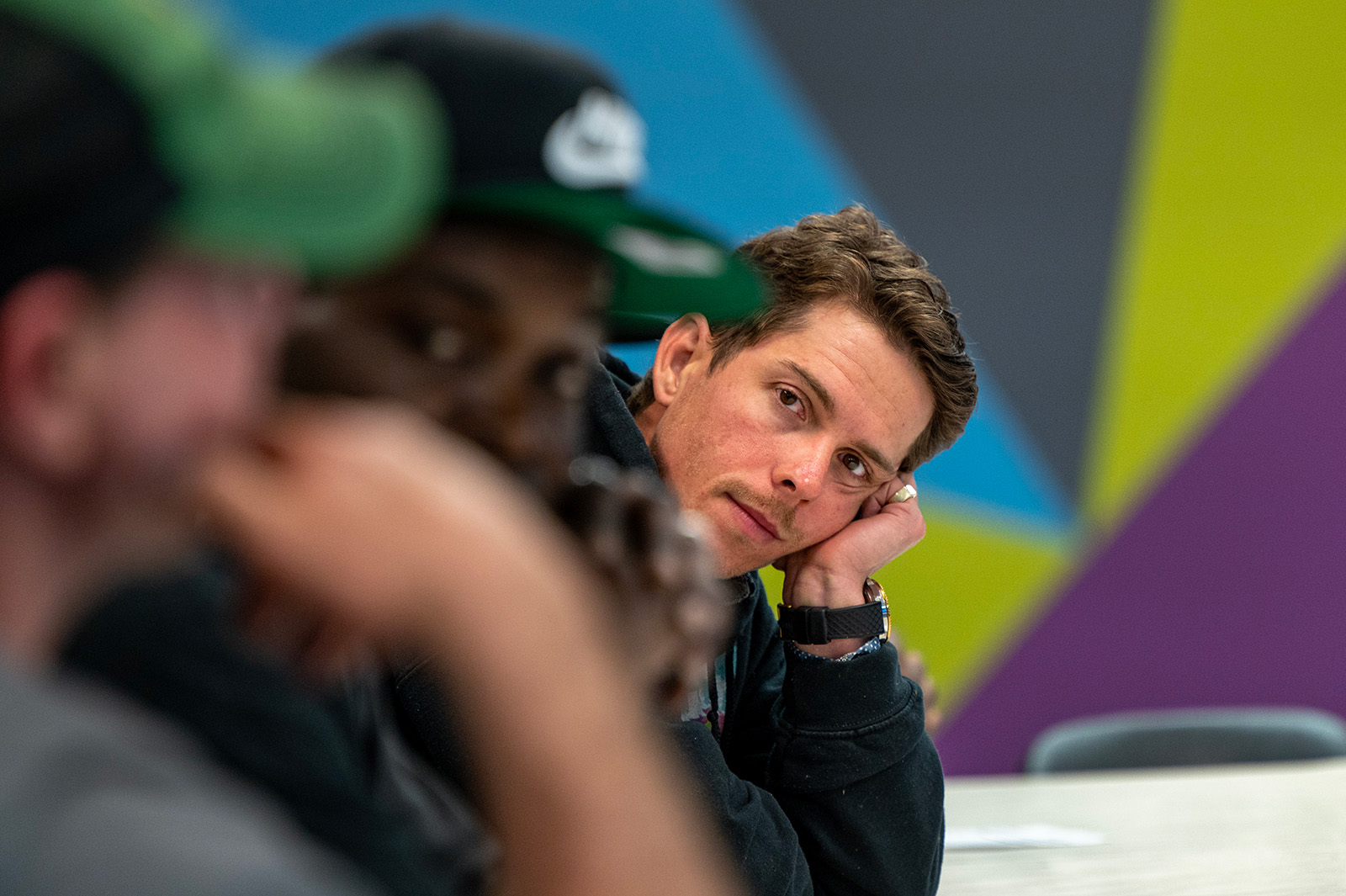
Fundamental change needed in how men view power in a relationship
Boon's task is formidable: it is to lead these men to a fundamental change in how they view their relationships with women.
In one upcoming class, for example, the men will talk through potentially contentious topics with a female actor.
According to an often-quoted major report on domestic violence — the Duluth (Minnesota) Blueprint for Safety — a linchpin in domestic violence is “the batterer's sense of entitlement to his actions. His partner is the target of his violence not so much because of what she did, as who she is.
“The second linchpin characteristic of battering is the batterer's domination of the victim — not only physically, but often economically, socially, emotionally, psychologically, and legally.”
The class is 90 minutes on 26 Mondays. They men pay Boon $25 per session. It is for men only.
(Women also are charged with the crime of domestic assault; but according to a recent tally made by the Hauxeda, approximately 83 percent of those charged in Greene County in 2022 were men. There are separate batterers classes for women.)
The men seem receptive; they participate. When Boon asks questions, they give thoughtful answers.
In addition, four of the five agree to be photographed and interviewed by name for this story.
Boon has been leading these classes for nine years. Of the 449 men who have participated, 63 percent completed the class successfully, he says.
Other than that, he does not know what happens to them. He does not know how many re-offend or how many end up in prison or how many actually put into practice what he teaches.
When Boon was asked who else (in addition to the Daily Citizen) he gives his course-completion numbers to, he said no one. That’s because no one else has asked.
Boon, 34, a licensed professional counselor, does not try to scare the men straight. He does not serve up fire-and-brimstone.
He affirms when possible and serves up lasagna, instead, which the men eat during the break.
“A lot of them need compassion and understanding,” he says.
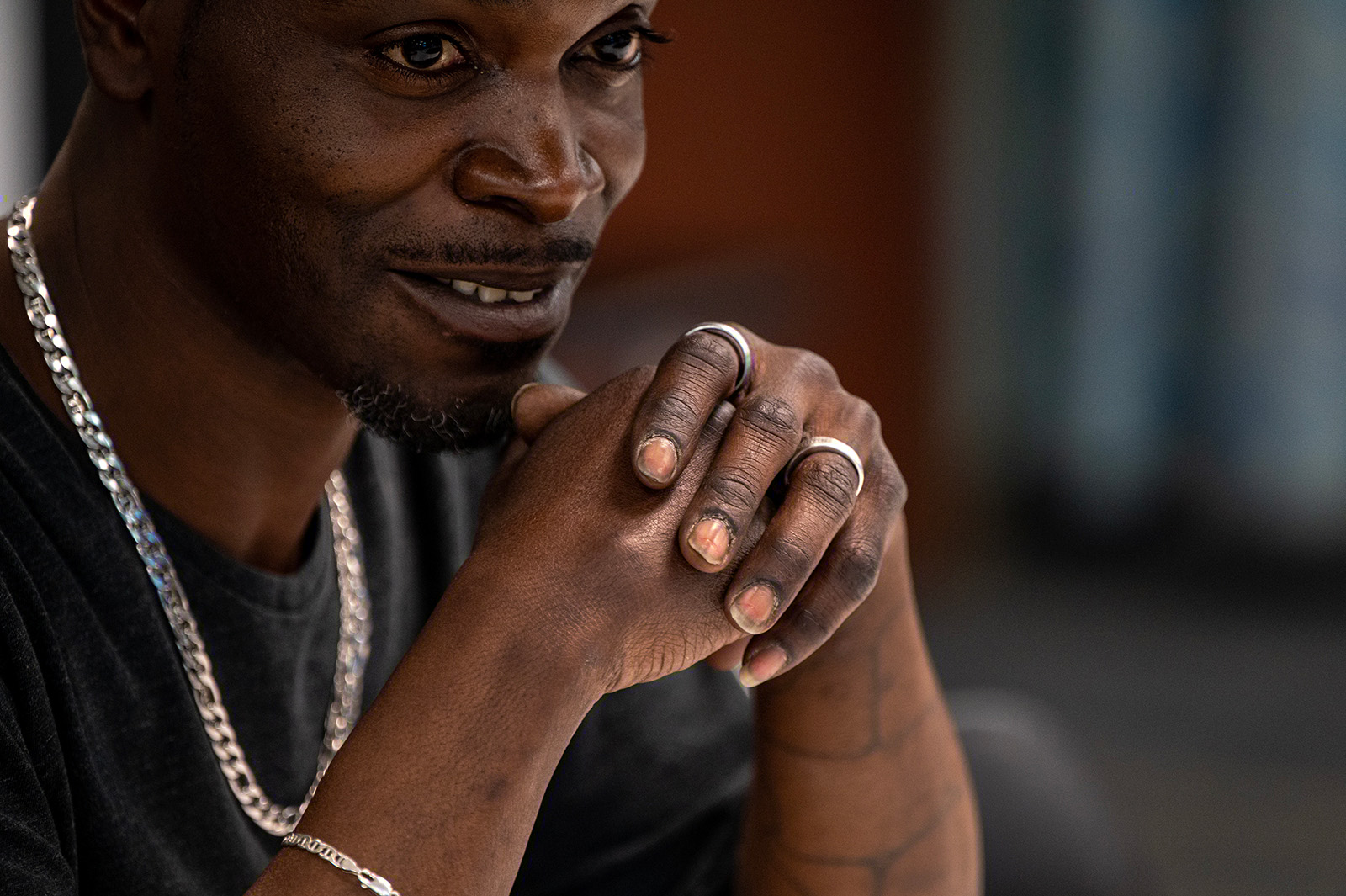
‘You release that masculinity that you got at home’
The mantra in the Duluth Blueprint for Safety is that abusers must face “sure and swift consequences.”
Desmond Deshawn Williams Sr., 42, of Springfield, would not be an example of that.
He says he has dropped out of the class twice before and had to “beg” Boon to get back for this, his third time through.
Williams is the father of nine; he fathered his first child at age 12.
“I've seen drag-out knock-down beating your girl up, with the kids in there crying,” he says. “I've seen that. I've seen it growing up in the city. And it was like a common thing.”
Williams says he's learning, growing and sharing what he learns in class with his children.
“I needed it. Because it's not really an anger-management class. It's more of a self finding. You find yourself here, man, you release that masculinity that you got at home.
“That whole thing is about me being masculine over my woman, and I couldn’t deal with my emotions.
“This dude (Boon) got some good stuff. That stuff in there works. And I'm wanting to tell you, I am an ex-gangbanger from Minneapolis, Minnesota.
“I've been in recovery things, because I'm an addict,” Williams said. “I've been to a couple of them, but none of them have the stuff that he's teaching. Nowhere. This stuff here is some primetime stuff.”
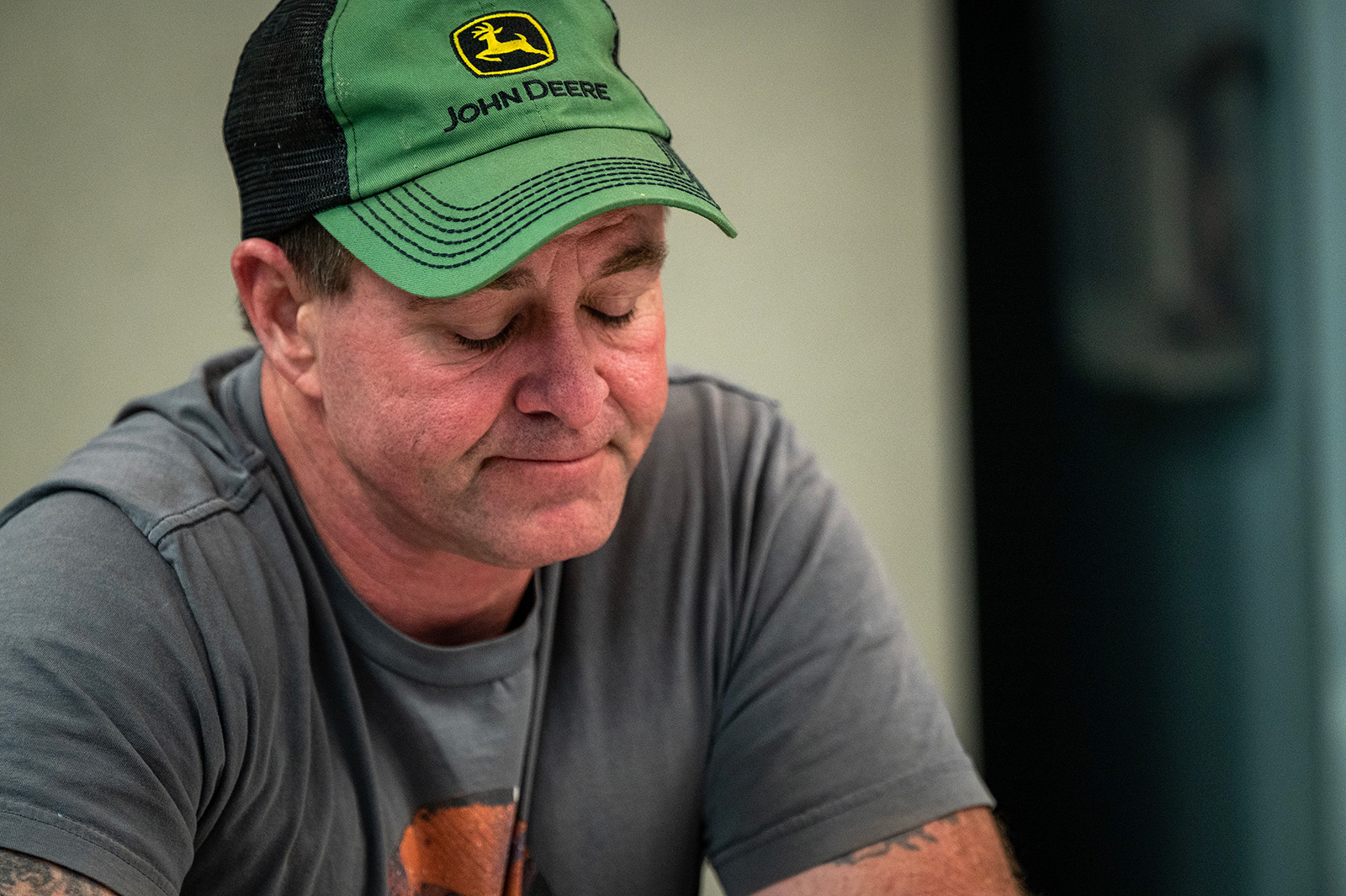
Violence and anger, a persona molded in prison
Matt Hoover, 52, of Springfield, attends voluntarily. He is doing what he can to hold onto a good job and a good woman.
He was shaped in large part, he says, by the 24½ years he has spent in prison. Yes, he says, he physically abused women.
“I would definitely grab her, I would definitely shove her — the worst part probably was the verbal abuse and mental abuse. I just spent so much time in prison.
“After going to prison and going to prison and going to prison — that's where violence works for you. You basically have to train yourself not to show any weakness. If you get too friendly, they think you're soft.
“If I got my feelings hurt — I got angry. If I got scared — I got angry. I think I just learned to use anger and aggression to fix whatever the situation.”
He was released from prison in November 2021. He met someone new.
“I met a fantastic girl. I had a good job. Had a lot of people to help me and back me, but I just couldn't get my head right.
“I was using again,” he says. And his new girlfriend found out. Then he lost his job.
“I was probably a couple of weeks from going back to prison,” he says.
To save the relationship, he called around for help and eventually landed here — in Boon's class.
“It was just a bottom I wasn't willing to hit,” he says. “I got clean.”
Then he realized something about himself.
“And I come to find out that, sometimes, I'm still a dickhead even when I'm not high. I never knew that was an issue because when I wasn't high, I was always in prison. ... I didn't know I was like that to people I loved.”
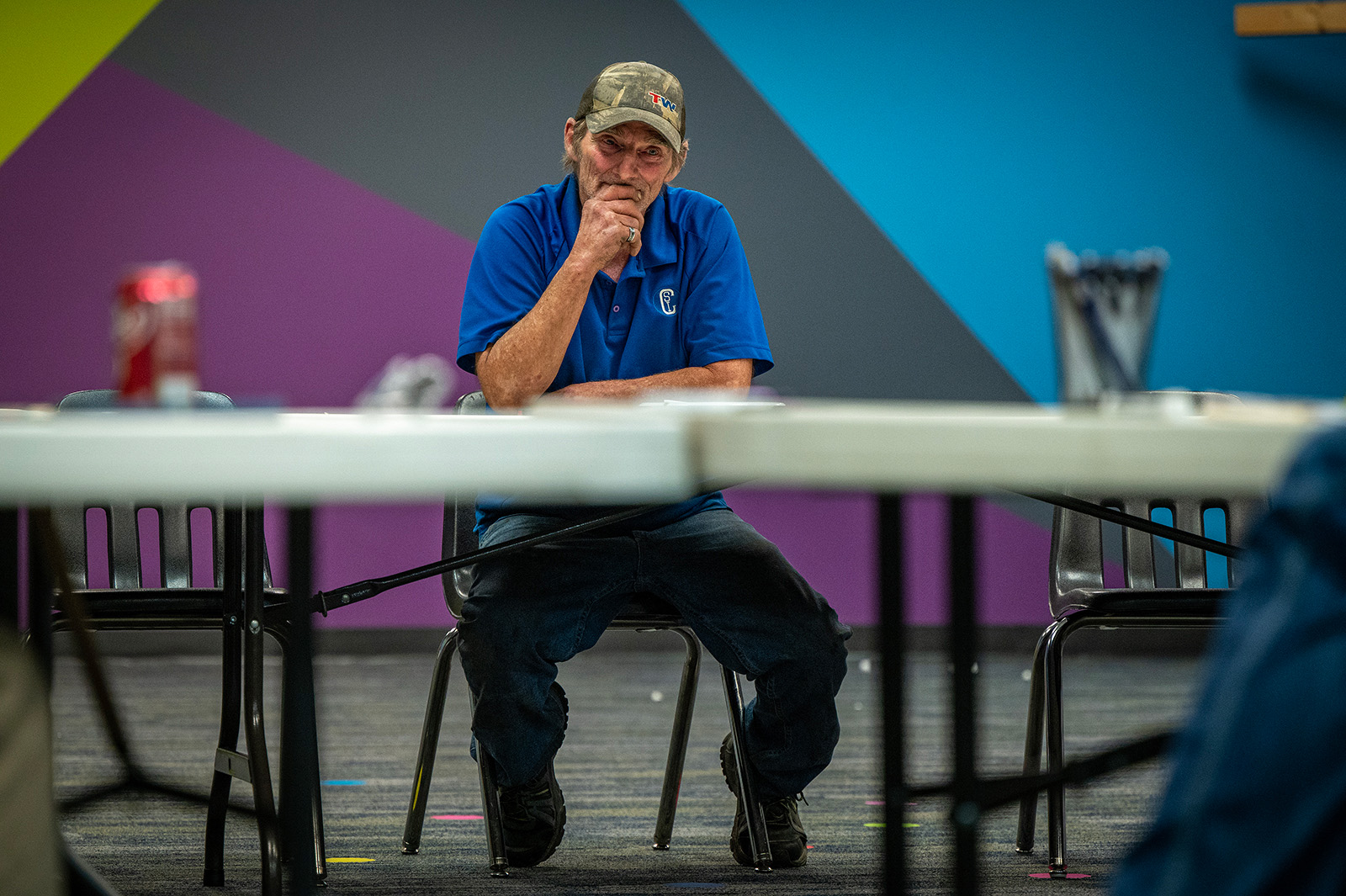
‘Think about things before you open your mouth’
William Umphrey, 62, of Springfield tells a reporter the reason he has to take the class is because he “supposedly” made a phone call in violation of a restraining order a few years ago.
“I don't remember making it,” he says. “A few years ago, I had neck surgery and I was kind of disoriented for a while. I don't know if I made it (the phone call) then or not. I don't remember.”
He received a suspended execution of sentence — meaning it was either the class or jail. He chose the class.
What has he learned in class?
“Not being so mean. Try not to be selfish. Think about things before you open your mouth.”
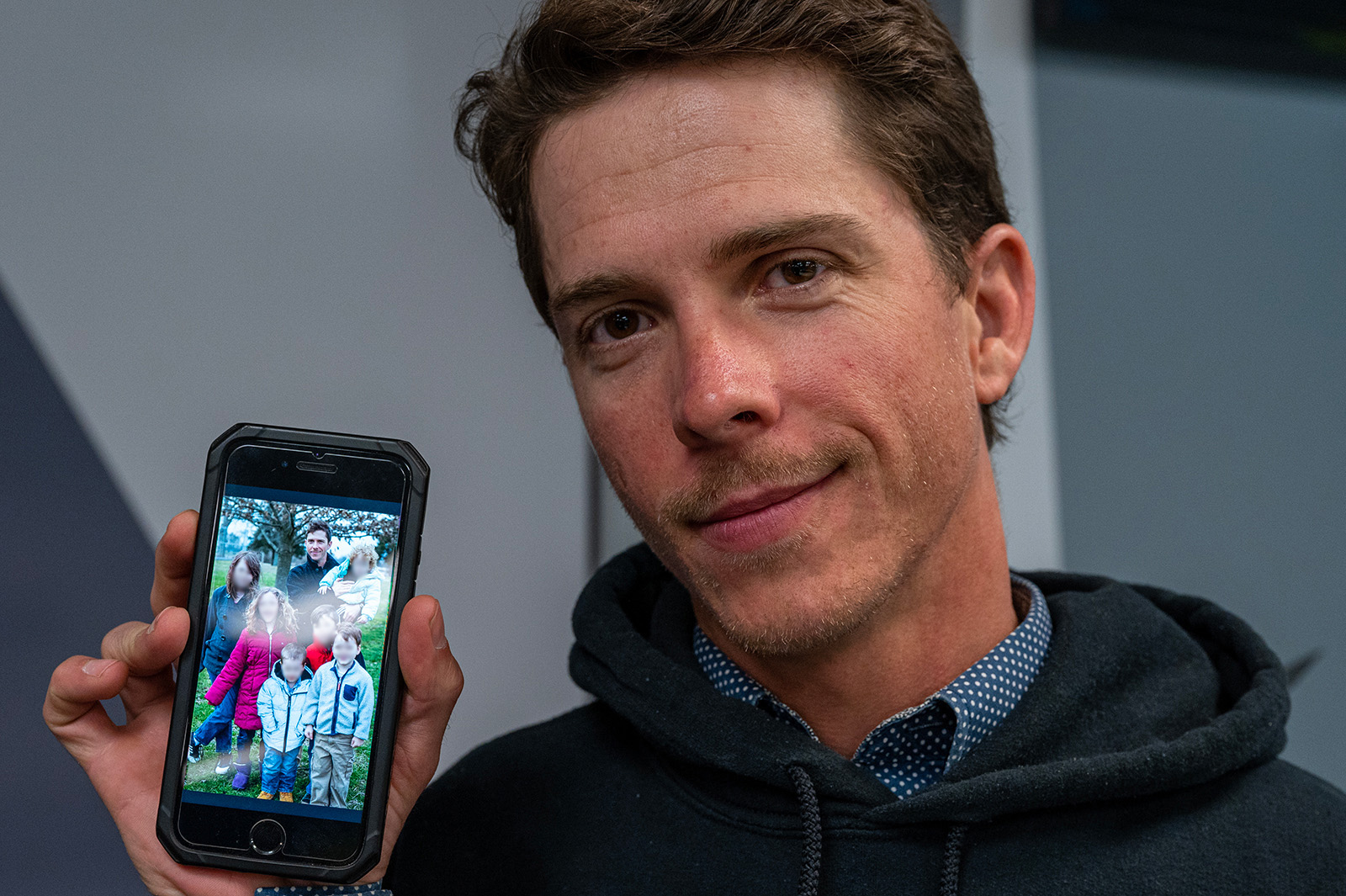
Man says there’s a ‘double standard’ in prosecutions
Jacob Davidson, 31, tells the class that although he was convicted of domestic assault, there was no evidence.
“I feel like they (police) do not ask enough questions and they are not really looking for the truth,” he says. “I feel like they just want to put a man away.
“I’ve been hit in public so many times … there is a definite double standard.”
He and his ex-wife have six children.
“Even the process sucks,” Davidson says. “You lose so much waiting to go to trial. Think how much time I've lost with my kids. I lost everything right away. I couldn’t go back to my house. I couldn’t get my stuff. I couldn’t see my kids.”
Over the weekend, Davidson tells the group, he experienced the joy of playing basketball with his 6-year-old son. He had purchased the basketball stand for the occasion.
Boon shares that he has a 6-year-old son, too.
Boon does not challenge Davidson’s statement that he was wrongfully convicted. Neither do the other men.
A reporter asks Boon about that later:
Can this batterers class serve its purpose when an alleged abuser denies he broke the law?
Yes, Boon says.
Boon says he has been running the class long enough to conclude that there are occasions when the system fails the alleged abuser.
First, he says, there are, in fact, men who routinely are physically abused by their intimate female partner.
Second, keep in mind, Boon tells a reporter, many of the men have not only made poor decisions regarding their relationships with an intimate partner.
“They have made poor decisions in general,” he says. It’s often because they cannot communicate.
Boon says he is trying to give these men a new tool. He wants them to find a way to speak with honesty, kindness and respect.
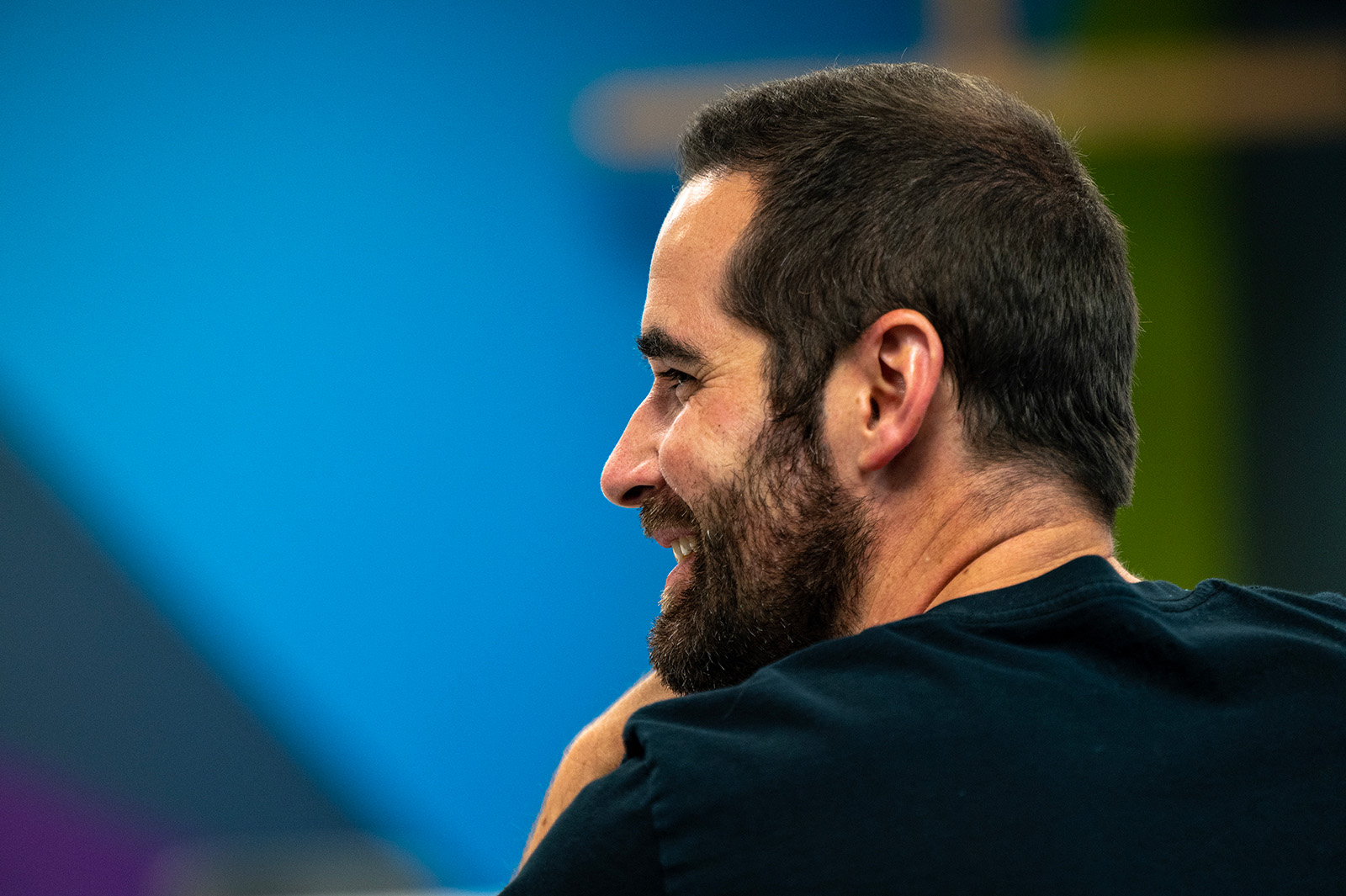
In need of compassion, grace and forgiveness
Boon says his Christian faith is part of why he works with batterers.
“Even though I don’t have a criminal background, I don’t have felonies, I haven’t been convicted of domestic assault.
“But spiritually speaking — I am in the same places they are. I'm in need of love. I'm in need of compassion. I’m in need of grace and forgiveness and help. I want to give that to them as much as I can.
“Some people are ready to receive that. And for those people who are ready to do well and not be destructive, to be peaceful, it’s a wonderful thing to experience. For others who are not ready and make that really clear, it’s disappointing and it’s heartbreaking.”
Men don't complete the course for many reasons, he says.
“A lot of times they are heavy in drug addiction, and they are just spiraling downwards. I don’t kick people out for relapsing. But I do kick people out when they show me it’s not going anywhere. They are not getting into treatment. They are not trying to work on their recovery.”
Boon has no data on how many men complete his course and are later arrested for domestic assault again.
“Nobody follows up with me on that,” he said.
But he has a sense that it’s not unusual.
In his view, it is still an accomplishment when an abuser who previously was charged with domestic assault twice a year is now charged, for example, once every five years.
“It's not much, but it's progress,” he says.

